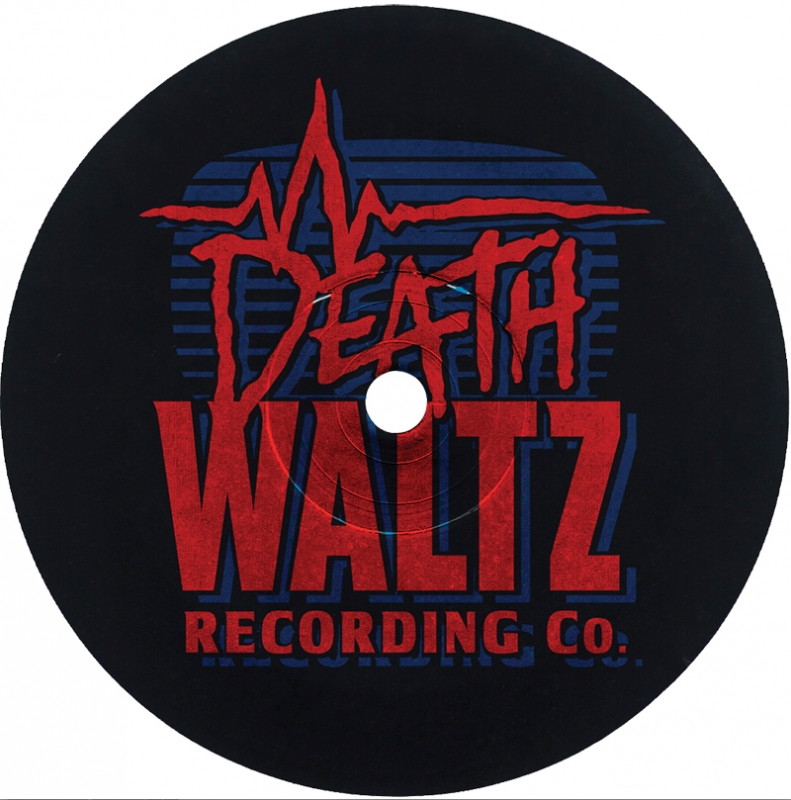Death Waltz Recording Company: An Interview with Spencer Hickman
Music Interviews
Opening any release from Death Waltz Recording Company is like opening a fantastic gift—soundtracks to films both cult and lost, with bespoke tip-on jackets, detailed liner notes, unique artwork, lithographs and colorful variants, all combined to form an immensely rewarding multisensory experience. These records aren’t like many others: They’re special, rather than a reissue cash grab—and obviously the work of someone who loves what he’s doing. I spoke with Spencer Hickman, owner of Death Waltz, via Skype at 3 a.m. here, to make up for the time difference between the Mountain West and the UK. The conversation moved quickly, comfortably, and focused on one of my favorite topics—records.
Hickman opened shop with Death Waltz in 2011, a name taken from the title of a track by Italian horror-prog and frequent Argento-collaborators, Goblin. Hickman says that he spent about three months writing stuff down, trying to come up with a name for the label, “Something that’d look good,” he says, knowing that he “definitely wanted ‘recording company’” in the title because it had an “old school ring to it,” he says. “[I was] at home listening to Suspiria … looking at the sleeve, saw ‘Death Waltz,’ and said, ‘That’s it!’”
Hickman is directly involved with all aspects of the label, including customer service. Asked about why it’s important for him to have a direct line of communication between himself and Death Waltz customers, he says, “I’ve always been like that, to be honest, because I’m a fan. Not being cheesy, it’s the truth. I like to keep people in the loop.”
His enthusiasm for sharing knowledge bleeds over into every aspect of quality record listening, and the conversation, of course, began by talking about his current, treasured turntable, a Michell Transcriptor—the classic piece of hi-fi gear most recognizable for its use by Alex DeLarge (Malcolm McDowell) in A Clockwork Orange. “That’s always been my dream deck, and I’ve always had fairly mid-range decks,” Hickman says. Two years ago, at a London record/hifi store, Hickman saw the Transcriptor and had to have it, so he sold a few things. “For me, there’s something super iconic about it,” says Hickman. “There’s something really nice about a vintage deck … My amp’s a really old Pioneer. I don’t think it’s a nostalgia thing—it just looks cool.” He’s currently in the process of writing a gear guide broken into price points for people getting into vinyl, and recommends to always buy vintage when it comes to turntables and stereo gear. “Some people don’t like to get used gear due to worry, but there’s a reason why that stuff still works,” he says. “Things [have] become more disposable. People upgrade all the time, but these things were built to last a lifetime.“
Hickman is also responsible for bringing Record Store Day to the UK seven years ago, while running Rough Trade East record shop, one of the UK’s most recognized music institutions. Of the event’s current status, he says, “Personally, I think it’s kind of [at] a breaking point. When RSD started, stores were really struggling. Vinyl hadn’t broken through like it has now. Vinyl sales are high now.” Hickman says that, on a personal level, he’d like to see the number of RSD releases drop. He says, “Next year, I would like to see no releases taking place, and just celebrations—not trying to be controversial.” We are in agreement that the day should be about going to your local store and having a great time (Full-disclosure: I’m the owner of Albatross Recordings in Salt Lake). “Seeing people out with their kids, and the kids being really excited … at some point, if it just becomes a commercial venture, it could lose the magic,” says Hickman.
Considering some highlights as far as experiences since starting Death Waltz, Hickman says, “So many: being able to work with Fabio Frizzi and striking up a friendship. Being able to talk to Alan Howarth and John Carpenter. Getting sleeve notes. Working with Dinos Chapman for The Fog release,” to name a few. He says, “Every release is really special. I wouldn’t do it otherwise.”
Jeff Grace’s scores for Ti West’s The House of the Devil and The Innkeepers were originally to be the label’s first two releases, but these things can take time. Frizzi’s score for the Lucio Fulci film, Zombi 2/Zombie Flesh Eaters became the first, in 2012, while the scores for The House of the Devil and The Innkeepers are finally due in several months. Beyond the Black Rainbow is planned for July. He says of how he chooses a score to release: “It has to be interesting as an album, independent of the movie. [You] have to be able to listen to it, otherwise, there’s no point.”
It’s a wonderful thing to see the person responsible for these reissues as excited as the audience. “When I started the label, I just wanted to do something cool that I’d want to buy,” Hickman says. “[I] never thought that things would get that big. I just thought it’d be a fun thing: Press 500, sell it—next 500. I didn’t realize the need for something like what Death Waltz does.” The label has a slew of RSD releases for April, including composer Clint Mansell’s score for In The Wall, and plans a “Willy Wonka–style” golden ticket giveaway as part of this year’s celebration.
Find Deathwaltz online at deathwaltzrecordingcompany.com.

